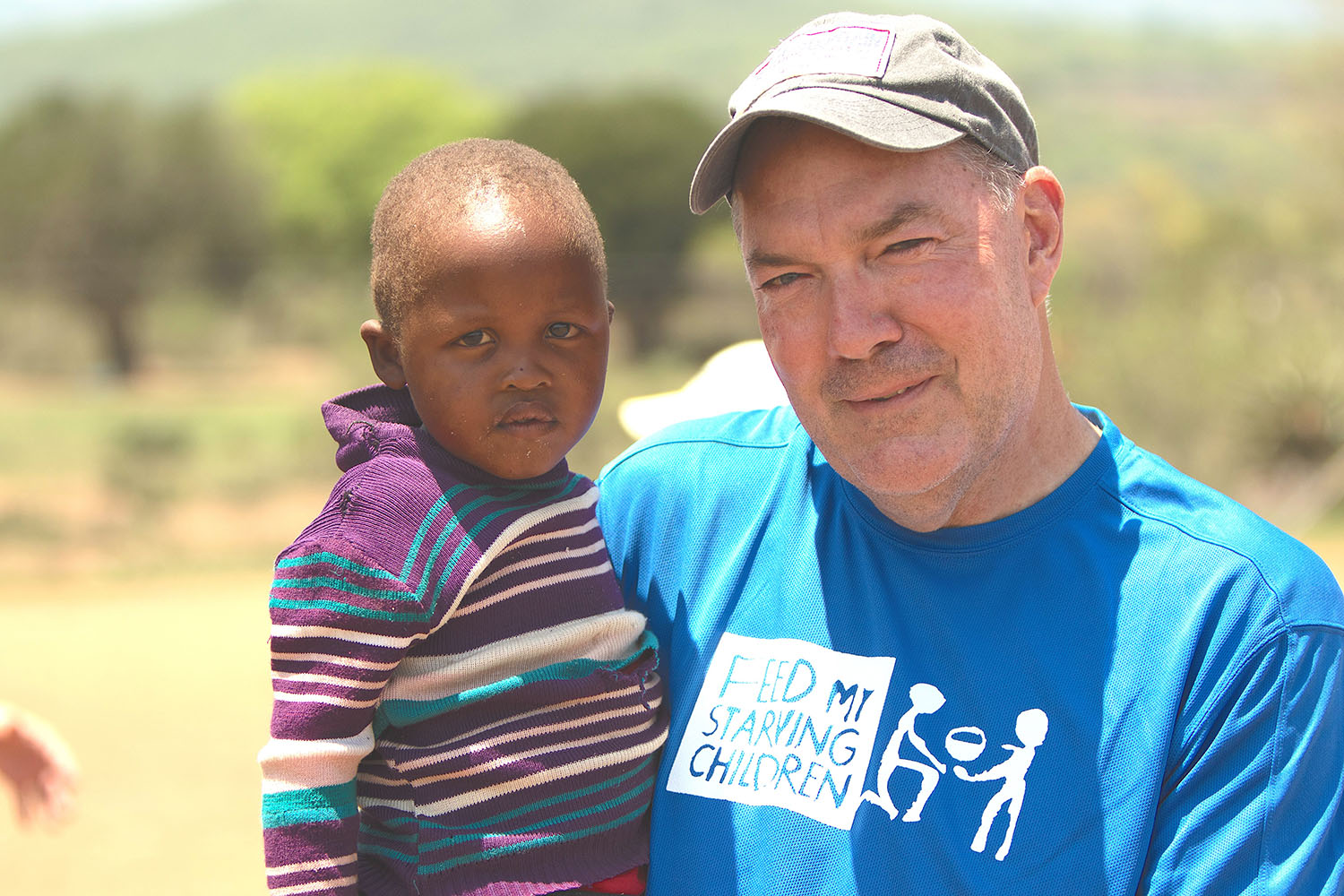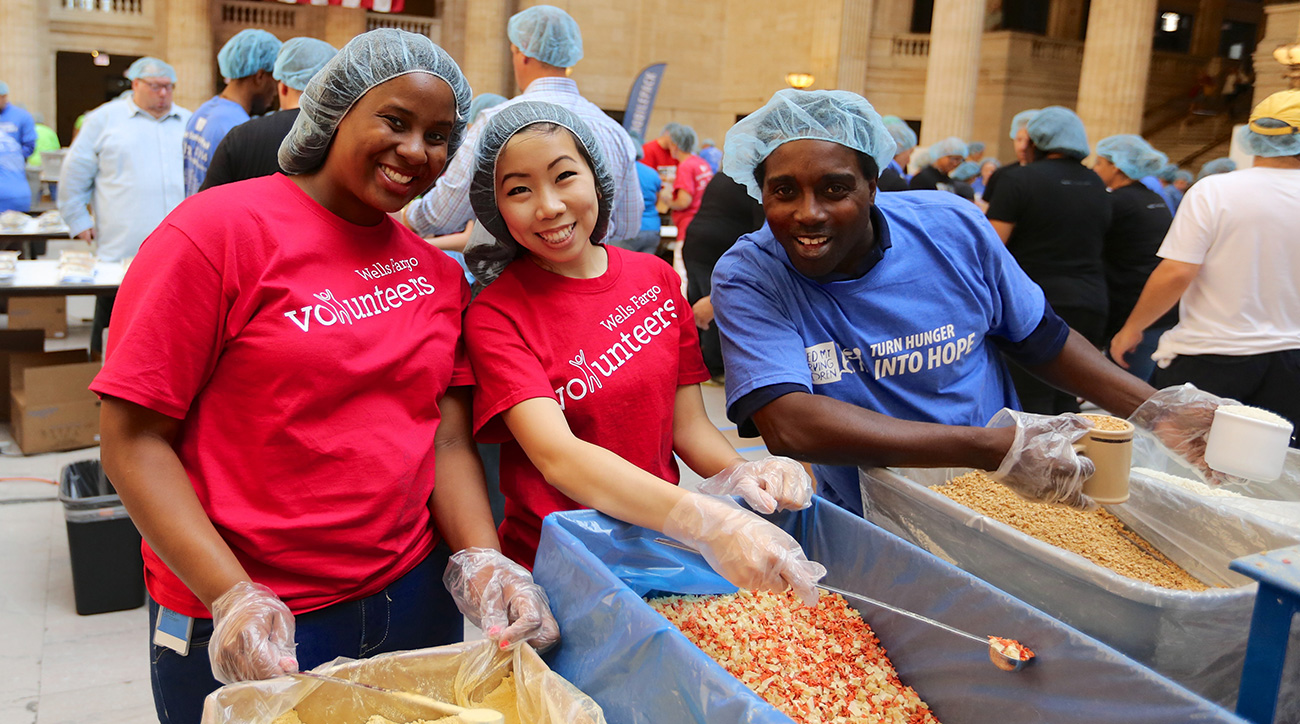Story by Jennie Trejo. Photos provided by Ron Carey.

FMSC, founded in 2003 in Minneapolis, has grown to impact lives in over 50 countries. The organization’s mission is straightforward yet powerful: to provide nutritious meals to children in desperate need.
“Unlike in Dallas, where community resources and safety nets are readily available, the regions FMSC serves often lack such support systems,” Ron explains.
In 2015, the initiative took a significant leap. They aimed to increase their impact from packing 100,000 meals to an ambitious one million meals. Ron, leading the initiative, says they were fortunate to use the gym at Parish Episcopal School, where the larger facility allowed them to pack a million meals over a three-day weekend without being limited by church services.
Dallas is now home to a permanent FMSC site in Richardson, a testament to the city’s commitment to the cause. The site operates six days a week, accommodating up to 120 volunteers per shift, and runs from 8 am to 9 pm. However, the permanent site is currently closed due to storm damage, making mobile packs essential in supplementing the organization’s needs.

The packing events, or “mobile packs,” are meticulously organized and run smoothly thanks to FMSC’s efficient system. Volunteers form a U-shaped assembly line, scooping ingredients like soy, rice, protein powder, and freeze-dried vegetables into bags, which are then sealed and boxed. Each bag provides a life-saving meal for a family of six.
“What’s amazing is that it’s tangible,” Ron explains. “At the end of the day, you know exactly how many meals you’ve packed and where they’re going.”
The packing events are engaging and fun, complete with upbeat music and challenges. It’s an experience suitable for all ages, from kids to older adults, who can help by applying stickers to the bags.
Currently, there are 5,500 volunteers signed up for the upcoming Turn Hunger Into Hope MobilePack event scheduled for the weekend of August 16-18. The last event was held pre-COVID, about five years ago, and Ron admits there was initial nervousness about recruiting 5,000 volunteers. However, all 11 shifts of 500 volunteers each have filled up.
In addition to the meals that will be shared globally, this year’s event will also support a local cause, embracing the theme of “Serving Globally / Serving Locally.” They have chosen Dallas Bethlehem Center, a non-profit serving the South Dallas community, as the recipient of their efforts. During the 3-day MobilePack, volunteers will be asked to collect and bring the following items to Parish Episcopal School:
Ron saw firsthand the difference these meals make. In 2016, he traveled to Haiti with FMSC and visited an impoverished area without water, power, or basic necessities.
“People lined up for food, half of the kids without a stitch of clothing,” Ron says. “It was uncomfortable, but food always wins over clothing because it’s necessary for survival. That’s how crucial these meals are.”
The logistics of distributing these meals are complex and often dangerous. Ron explains that local partners in countries like Haiti and Sudan risk their lives to ensure the food reaches those in need amidst political turmoil.
From an operational standpoint, Ron says that FMSC is a lean organization, with 90 cents of every dollar going directly to food production. They also support artisans in countries like Zambia and Haiti by selling their crafts at the Richardson site, providing fair wages, and reinvesting profits into meal production.
For Ron, the personal “why” behind his dedication to FMSC is clear. “Without what FMSC is doing, many starving kids would go unfed and end up dying. It’s heartbreaking to think about the 6,000 kids who die daily from malnutrition. That’s 2.2 million kids a year.”
As we look to the future, FMSC aims to pack 400 million meals this year, a goal that requires continued support and involvement from volunteers and donors alike. “It’s about more than just making meals,” Ron says. “It’s about ensuring that food reaches those who need it most.”
If you want to get involved, you can check out the FMSC starving website here. Even though volunteer registration is full, Ron emphasizes the importance of checking back for open spots, as people might realize they signed up for too many shifts or cannot attend. “Our goal is to try to accommodate everyone as much as possible,” he says.
Sign up with your email address to receive good stories, events, and volunteer opportunities in your inbox.